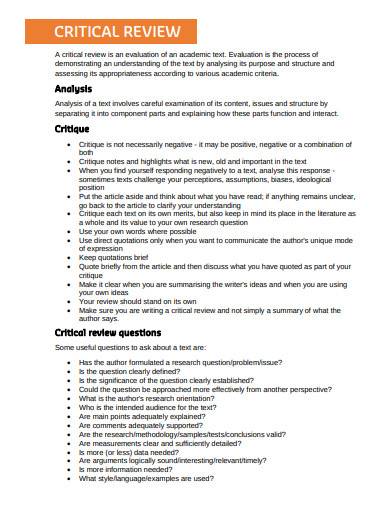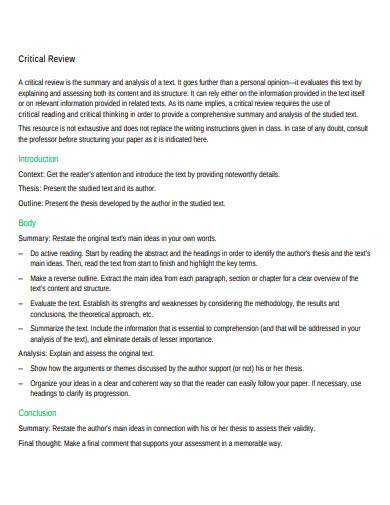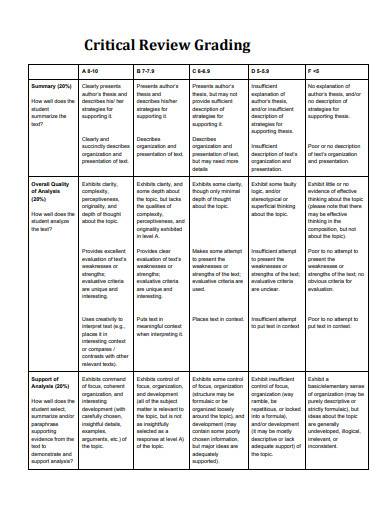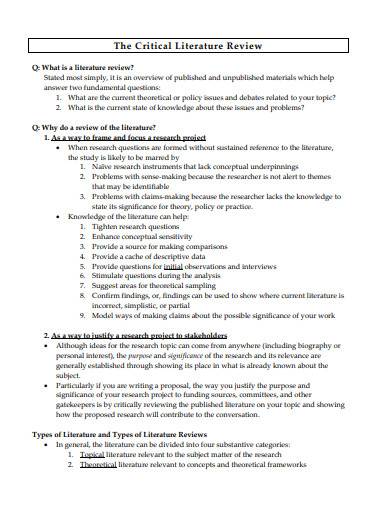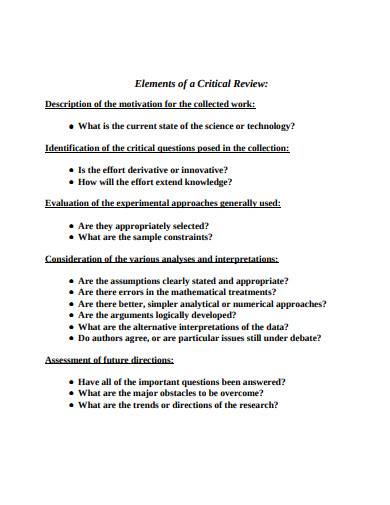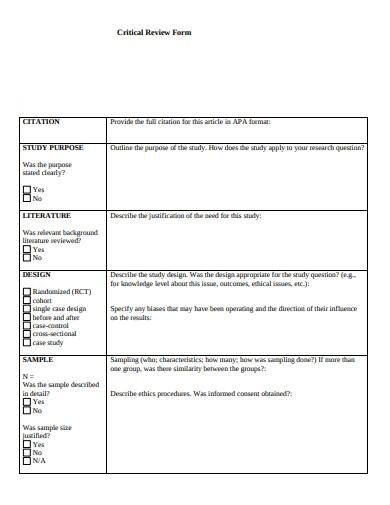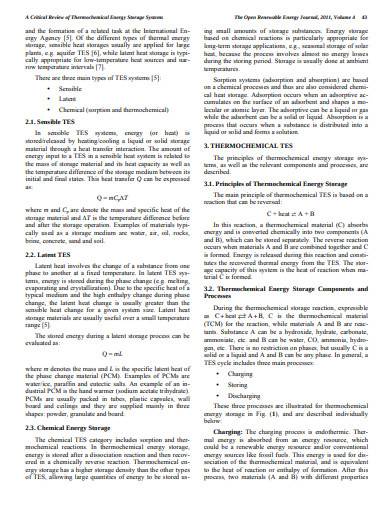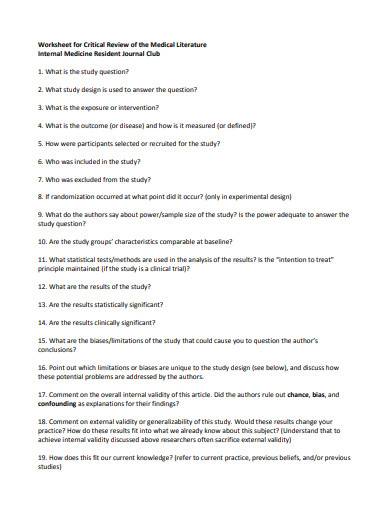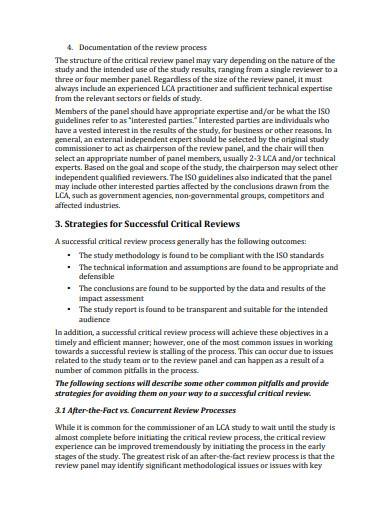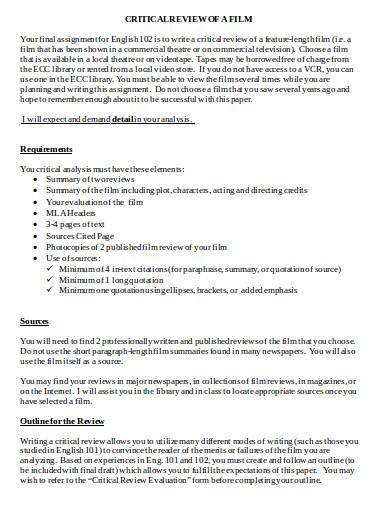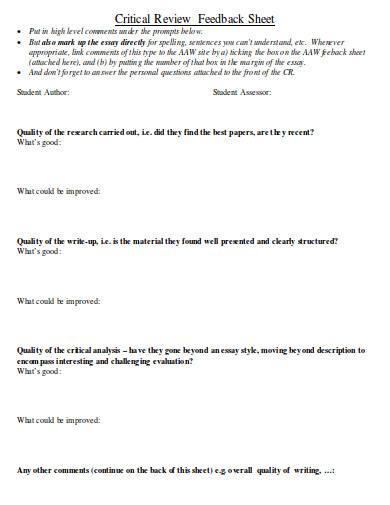Though often uttered for comedic effect, the phrase “everybody’s a critic” deserves more merit than it’s given. Most often said in the spirit of lighthearted jabbing, this fragment of a sentence actually holds relevance in the business industry. A critical analysis is an integral part of entrepreneurial advancement as it opens up the possibilities for improvement, areas of weakness, and successfully integrated parts. And how is this information presented you may ask? With a methodically done critical review, of course!
What is a Critical Review?
The world of business today is harsh and straight to the point—nothing is ever sugar-coated. Critics are both your greatest allies and harshest opponents. They point out elements of your business plan that are effective and provide tips on further improving these aspects, but they also ruthlessly indicate the impractical and faulty parts. More often than not, this form of data analysis is done in the format of a critical review.
It’s easy to assume the definition of a critical review based on its morphology. However, fully comprehending its purpose in the business industry requires more in-depth knowledge. A business critical review is, with all intents and purposes, a document that thoroughly studies a business concept. Once it has gained sufficient knowledge of it, a critical review then proceeds to further dissect the information into more manageable and comprehensive categories.
Critical Thinking: The Core Concept of Analysis
A critical thinker has various characteristics, and all these traits are used in various tasks ranging from simple problem solving and defusing a quarrel. However, critical thinking is a skill that must be learned to succeed in this new and fast-paced world. Both successful entrepreneurs and scientists understand the need to balance both passion for your field and objectivity in decision-making; hence, they excel by critically analyzing documents and finding ways to further improve either a business plan or a research study.
Thus, when throwing the notion “critical thinking is the core concept of analysis” into the air, it’s safe to assume that no one will shoot it down. From business-related ideas like project proposals and budget plans to more research-oriented subjects like biotechnology, literature, and data journals, critical thinking is required to fully grasp the complexity of analysis. As a matter of fact, some of the most successful franchises and businesses today do not stagnate. Rather, they find new ways to strategize around their market’s wants and needs, continue to be a step ahead of their competition, and further improve the quality of their goods and services—all through the power of critical thinking.
10+ Critical Review Samples
Writing a critical review is a rather simple task—if it wasn’t for all the meticulous subcategories and analytics required to fully complete your document. As such, having sample templates as a format to serve as reference when drafting your text saves you a lot of time and energy.
1. Critical Review Sample
2. Basic Critical Review Template
3. Critical Review Grading Sample
4. Critical Literature Review Template
5. Elements of Critical Review Sample
6. Critical Review Form Template
7. Critical Review of Thermochemical Energy Storage Systems
8. Worksheet for Critical Review of the Medical Literature
9. Critical Review Process Sample
10. Critical Review of a Film in DOC
11. Critical Review Feedback Sheet in DOC
How to Critically Analyze Documents
From team performance evaluations to risk management plans, the ability to critically reviewing business documents is what keeps high-end companies on top. This is due in part to how business documents require near-perfection levels of accuracy in statistics and practicability to be implemented. Meticulously looking at your text allows you to find areas of improvement, identify strong points, and increase the text’s quality overall.
1. Be Observant
There’s no point in critically analyzing your document if you’re just going to skim over it. This isn’t like writing an essay on a story or poem where you can simply skim over the text for the important points you can write on. You want to “leave no stone unturned” as it were, and make sure each point of the text is well understood.
2. Remain Objective
It’s quite difficult to balance passion for a cause with objectivity in judgement. Though biases are innate to human nature, declaring a project proposal as perfect and well done simply because your friend made it is horrendously incorrect. As such, maintain a sense of objectivity and equally criticize every document irrelevant of who made it and what the purpose is.
3. Search For Reliable References
From published business research studies to proven and tested marketing strategies, there are a multitude of reliable references available today. Finding two or more within the text of what you’re currently reviewing gives its credibility a boost. Do make sure, however, that the resources match the main goal and context of the document. For example, if a marketing strategy is used as a reference for a proposal to increase employee effectiveness, take a closer look to find relevance.
4. Question From Various Points of View
There is a definite line between critically reviewing a document and defamation. Your goal as an impromptu critical analyst is to find both the effective and the unnecessary in your document and improve the text overall, not to discredit it. As such, questioning a document from various points of view helps you find loopholes, strengths, and weaknesses of the proposal or report.
There is a reason why critical reviews are relevant in multiple fields beyond the business industry. These documents aid in eliminating variables that contribute to a concept’s uncertainty, allowing it to enable aspects of it that are possible to execute and implement and improve the state and well-being of any franchise’s competitiveness. With that said, understanding the heft of objectivity required to effectively criticize work is vital to a fundamentally sound and effective critical analysis and review.
Related Posts
News Report
Written Warning
Teacher Lesson Plan
Visitors Log
Reflective Writing
Briefing Note
Timetable
Training Evaluation Forms
Acceptance Speech
Scientific Reports Samples & Templates
Attendance List Samples & Templates
Sample Meeting Minutes Templates
Presentation Speech Samples & Templates
Ukulele Chord Chart Samples & Templates
Retirement Speech Samples & Templates

